Results
-
 £99.99
£99.99Whence is that goodly Fragrance flowing?
'Whence is that Goodly Fragrance Flowing?' is the first line of an old French Christmas song that originated in the 17th century. In 1728 John Gay used this joyous and markedly festive melody that honours Jesus Christ and His miraculous birth in his Beggar's Opera. Philip Sparke has given this melody a new lease of life with his charming and imaginative arrangement for the Christmas season.
Estimated dispatch 7-14 working days
-
 £191.50
£191.50Concertino for Marimba and Winds - Alfred Reed
Written for famed Japanese marimba soloist, Reiko Kono. This concerto-like work is accompanied by the full resources of the modern concert band. The movements are a romantic "Nocturne", a gay, lilting "Scherzetto", and a brilliant "Toccata" which is surprisingly set to a swing-boogie rhythmic background.
Estimated dispatch 7-14 working days
-
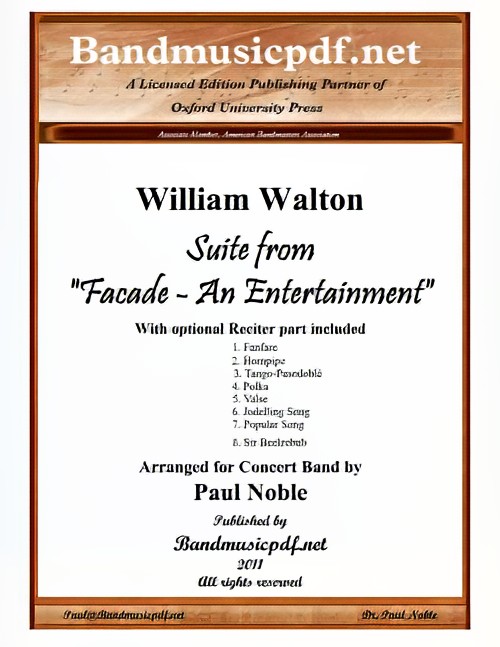 £375.00
£375.00Facade - An Entertainment, Suite from (Concert Band with Optional Narrator - Score and Parts) - Walton, William - Noble, Paul
This Suite from Facade - An Entertainment, composed by William Walton, with poems by Dame Edith Sitwell, presents for the first time a grouping of movements selected and arranged by Paul Noble for Concert Band and optional Reciter. The original composition was written between 1921 and 1928, containing forty-three numbers. They had their origin in a new style of poetry that Edith Sitwell evolved in the early 1920s, poems that her brother Osbert later described as 'experiments in obtaining through the medium of words the rhythm and dance measures such as waltzes, polkas, foxtrots... Some of the resulting poems were sad and serious... Others were mocking and gay... All possessed a quite extraordinary and haunting fascination.' Possibly influenced by the dance references in some of the numbers, Osbert declared that the poems might be further enhanced if spoken to a musical accompaniment. The obvious choice of composer was the young man who lived and worked in an attic room of the Sitwell brothers' house in Carlyle Square W[illiam] T[urner] Walton, as he then styled himself. The now historic first performance of the Facade Entertainment took place in an L-shaped first-floor drawing-room on January 24, 1922. Accompaniments to sixteen poems and two short musical numbers were performed by an ensemble of five players. The performers were obscured from the audience by a decorated front curtain, through which a megaphone protruded for Edith to declaim her poems. This was, as she put it, 'to deprive the work of any personal quality'. The first public performance of Facade was given at the Aeolian Hall on June 12, 1923. By now, fourteen poems had been set, others revised or rejected, and an alto saxophone added to the ensemble. The occasion gave rise to widespread publicity, both pro and contra, and the name of the twenty-one year old W. T. Walton was truly launched. In the ensuing years the Facade has gone through revisions and additions, with full orchestral arrangements of selected movements being made without the Reciter. Former Band Director Robert O'Brien arranged some movements for band, again without Reciter, which are now out of print. So this 'history making' addition is the first opportunity for Concert Bands to present some movements of Facade with poems as originally intended. The luxury of electronic amplification allows the full ensemble to perform without necessarily overshadowing the Reciter. And the arrangements are written with considerable doubling so that the ensemble may play in full, or reduced in size as may be desired for proper balance. And, though not encouraged, the arrangements are written so that the band can perform the music without the Reciter. Program notes are adapted in part from those written by David Lloyd-Jones and published by Oxford University Press in the Study Score of William Walton's Facade Entertainments.
Estimated dispatch 7-14 working days
-
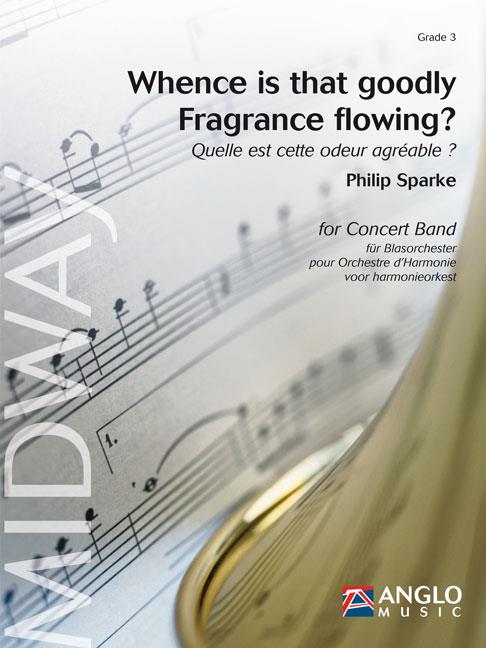 £99.99
£99.99Whence is that Goodly Fragrance Flowing? (Concert Band - Score and Parts) - Sparke, Philip
Whence is that Goodly Fragrance Flowing? is the first line of an old French Christmas song that originated in the 17th century. In 1728 John Gay used this joyous and markedly festive melody that honours Jesus Christ and His miraculous birth in his Beggar's Opera. Philip Sparke has given this melody a new lease of life with his charming and imaginative arrangement for the Christmas season.Duration: 3:45
Estimated dispatch 7-14 working days
-
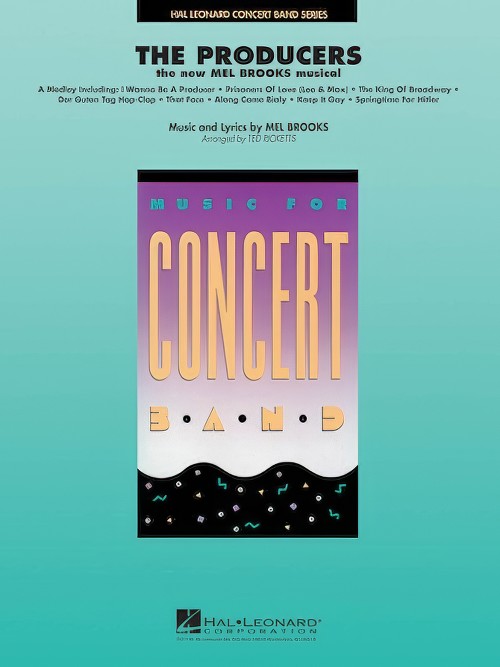 £76.99
£76.99The Producers (Concert Band - Score and Parts) - Brooks, Mel - Ricketts, Ted
This Mel Brook's masterpiece features a wealth of dazzling show tunes. Includes: Along Came Bialy, Der Guten Tag Hop-Clop, I Wanna Be A Producer, Keep It Gay, The King Of Broadway, Prisoners Of Love, That Face, and of course, Springtime For Hitler.
Estimated dispatch 7-14 working days
-
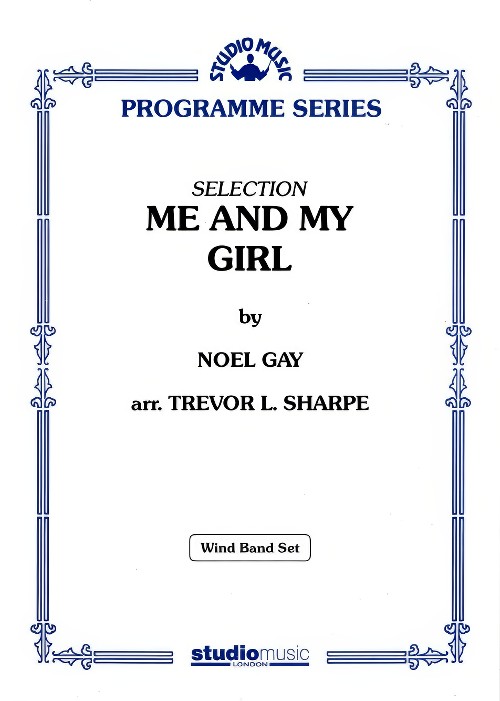 £69.95
£69.95Me and My Girl (Selection) (Concert Band - Score and Parts) - Gay, Noel - Sharpe, Trevor Lee
Selection from the stage hit musical. Includes:Me and My GirlOnce You Lose Your HeartThinking of No-one But MeLeaning on a Lamp PostLambeth WalkLove Makes the World Go RoundThe Sun Has Got His Hat OnDuration: 8:00
Estimated dispatch 7-14 working days
-
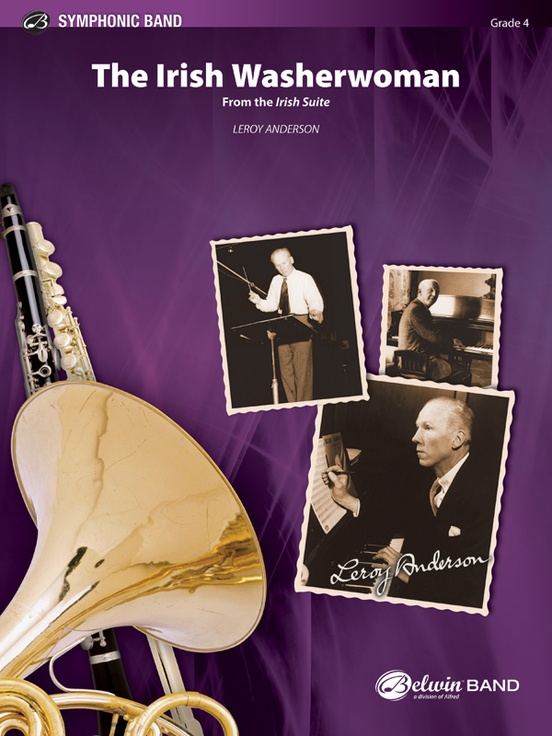 £73.50
£73.50The Irish Washerwoman (from The Irish Suite) (Concert Band - Score and Parts) - Anderson, Leroy
The Irish Washerwoman, the first movement of Leroy Anderson's Irish Suite, combines folk material with the composer's own whimsicality. The score was commissioned by the Eire Society of Boston and carries a dedication to Arthur Fiedler, who conducted its first performance on June 6, 1947 at Symphony Hall in Boston. The complete suite includes six melodies which range from the nostalgic to the humorous, from the plainly sentimental to the purely exuberant. Although the melodies come from overseas, the brilliant Irish Suite is typical of Anderson's nimble orchestration, ingenious charm, and happy inventiveness. This opening movement is a jig; brisk in tempo and gay in mood.This edition has been freshly re-engraved with a full-score for the first time, permitting articulation uniformity throughout the work.Duration: 3.00
Estimated dispatch 7-14 working days
-
 £173.25
£173.25Concertino for Marimba and Winds
Written for famed Japanese marimba soloist, Reiko Kono. This concerto-like work is accompanied by the full resources of the modern concert band. The movements are a romantic "Nocturne", a gay, lilting "Scherzetto", and a brilliant "Toccata" which is surprisingly set to a swing-boogie rhythmic background.
Estimated dispatch 7-14 working days
-
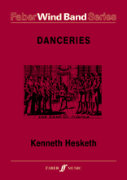 £105.00
£105.00Danceries (Set I) (Concert Band - Score and Parts) - Hesketh, Kenneth
The term 'Danceries' can be found in a copy of Playford's Dancing Master, an extensive collection of folk and popular tunes of the seventeenth century (and no doubt earlier). This publication was used by master fiddle players to teach the various dance steps of the day to a nobleman's house or a king's court. Whilst this present set of 'Danceries' cannot be said to be an aid to terpsichorean agility, it will at least set feet tapping! The melodies themselves are a mixture of new and old--well, nearly. Where the old occurs it has been adapted in mood and composition and is often interspersed with completely new material. The harmonies and rhythms bring a breath of the new into these themes and add to the drama of the set.Movement 1: Lull me beyond thee. Gentle and lilting, almost a barcarole, this movement is very much a reverie. The original tune had the name 'Poor Robin's Maggot' - a rather disconcerting title; maggot, however, in seventeenth-century parlance meant whim or fancy. This theme can also be found in The Beggar's Opera by John Gay (first performed in 1728) under the title 'Would you have a young lady' (Air 21).Movement 2: Catching of Quails. A colourful, buoyant scherzo on an original melody. The thematic material is shuttled around the band to contrast with full-bodied tuttis. The last few bars fade away to almost nothing before a final surprise!Movement 3: My Lady's Rest. A tender pavane, also on an original theme, with Moorish leanings. Solos for principal winds and brass contrast with warmer tutti passages. The movement culminates with a final presentation of the theme before evaporating in held flute and trumpet chords.Movement 4: Quodling's delight. The final movement to the set combining one of the melodies from Playford's Dancing Master ('Goddesses') with an original contrasting melody. A dramatic and exuberant ending to the set of 'Danceries'.Duration: 12.00
Estimated dispatch 7-14 working days
-
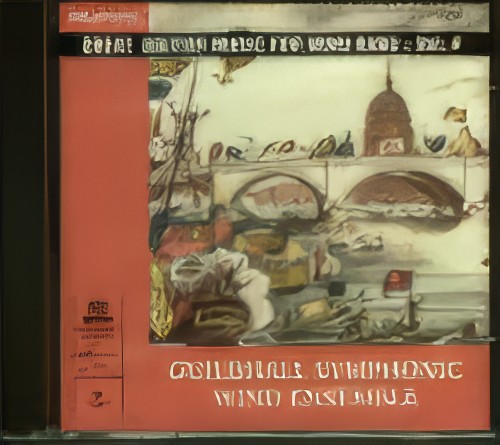 £13.95
£13.95GUILDHALL SYMPHONIC WIND ENSEMBLE (CD)
Great British Music for Wind Band Vol.4 Guildhall Symphonic Wind Ensemble. Director: Peter Gane. Includes: A John Gay Suite (Buxton Orr); Ring Time (Robert Saxton); Concerto for Trombone (Simon Wills) - Soloist: Graham Lee; Canyons (John McCabe)
Estimated dispatch 7-14 working days
